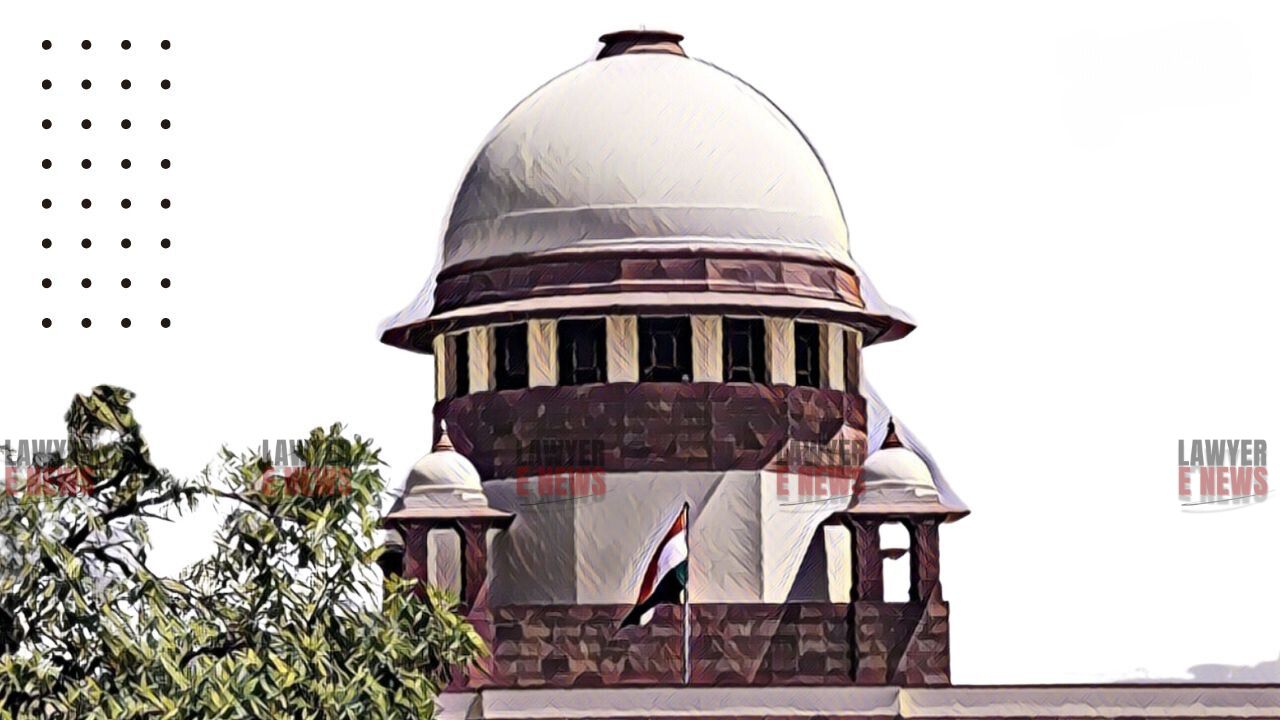-
by Admin
16 February 2026 1:47 PM



“Judicial Proceedings Must Follow Due Process” – Supreme Court has ruled that a High Court cannot disregard binding orders passed by a competent civil court or intervene in matters that are actively under litigation without following due legal process. Quashing the Allahabad High Court’s directive that transferred the management of Shri Khereshwar Mahadev Temple in Aligarh to the Gram Sabha, the Supreme Court held that judicial interference in property disputes must align with established legal procedures and respect pending litigation.
Delivering the judgment in Shri Khereshwar Mahadev Va Dauji Maharaj Samiti v. The State of Uttar Pradesh & Others, a bench comprising Justice B.R. Gavai and Justice Augustine George Masih observed that when a matter is pending before a civil court, any parallel executive or judicial actions must not preempt the outcome of those proceedings. The Court firmly stated that once a competent civil court has passed an order maintaining status quo, neither administrative authorities nor the High Court can override it.
Temple Management Dispute Escalates Amid Conflicting Legal Orders
The case arose from a long-standing dispute over the management of Shri Khereshwar Mahadev Va Dauji Maharaj Temple in Aligarh. The matter had been pending before the Additional Civil Judge (Senior Division), Aligarh, under Original Suit No. 623 of 2012, with multiple parties claiming control over the temple’s affairs. On April 6, 2019, the Additional District Judge issued an order directing the lower court to decide the matter afresh while maintaining the existing status quo over temple management.
Despite this judicial directive, Respondent No. 5, Manju Devi, the Pradhan of Gram Sabha Hardaspur, approached the District Magistrate, seeking the temple’s transfer to the Gram Sabha, citing a 2007 administrative order. The Sub-Divisional Magistrate (SDM) submitted a report on February 7, 2023, advising against any action as the civil case was still pending. Ignoring these legal proceedings, the Allahabad High Court, on May 30, 2023, directed that the temple premises be handed over to the Gram Sabha.
The temple committee moved the High Court with a recall application, arguing that the decision was taken without granting them an opportunity to be heard. However, the High Court dismissed the recall plea on May 10, 2024, leading to an appeal before the Supreme Court.Supreme Court Finds High Court’s Intervention Unjustified and Legally Flawed
The Supreme Court found serious procedural lapses in the Allahabad High Court’s handling of the case. It held that the High Court had acted in disregard of the Additional District Judge’s binding order, which had explicitly maintained status quo over the temple’s management. The Court further noted that the Sub-Divisional Magistrate had also recommended that no action be taken while the civil suit remained unresolved, making the High Court’s directive all the more indefensible.
Justice B.R. Gavai, addressing the errors in judicial reasoning, emphasized that when a competent civil court has already ruled on a matter, executive authorities and higher courts must refrain from issuing conflicting orders that undermine judicial consistency. The Court pointed out that the Allahabad High Court failed to recognize that the Gram Sabha was not even a party to the civil suit and had no legal standing to bypass ongoing judicial proceedings.
The Supreme Court made it clear that disputes concerning public property and religious institutions must be resolved through legal mechanisms rather than administrative shortcuts. It ruled that the Gram Sabha’s attempt to claim ownership of the temple based on a previous administrative order was legally untenable, particularly since no resolution had been passed by the Gram Sabha authorizing such action.
Supreme Court Quashes High Court Order and Directs Civil Suit to Proceed Without Interference
Reversing the Allahabad High Court’s orders dated May 30, 2023, and May 10, 2024, the Supreme Court restored the status quo as per the Additional District Judge’s ruling from April 6, 2019. It directed that the Additional Civil Judge (Senior Division), Aligarh, must conclude the trial in Original Suit No. 623 of 2012 within six months. The temple committee was further instructed to implead the Gram Sabha as a party to ensure that all claims were adjudicated fairly and comprehensively.
Justice Augustine George Masih, concurring with the ruling, reaffirmed that judicial proceedings must follow established legal procedures and that High Courts cannot disregard existing lower court orders without proper reasoning. The Court underscored that when a civil court is already adjudicating a property dispute, no parallel executive or judicial action should disrupt the ongoing legal process.
Supreme Court Reinforces the Importance of Judicial Discipline in Property Disputes
The ruling in Shri Khereshwar Mahadev Va Dauji Maharaj Samiti v. The State of Uttar Pradesh & Others reaffirms the Supreme Court’s commitment to upholding judicial discipline and due process in property disputes. The judgment sends a strong message that High Courts must exercise caution before issuing orders that contradict existing civil court rulings. The Court’s intervention ensures that temple management issues are resolved within the legal framework and that judicial consistency is maintained in matters concerning public and religious property disputes.
Date of decision: 05/03/2025
